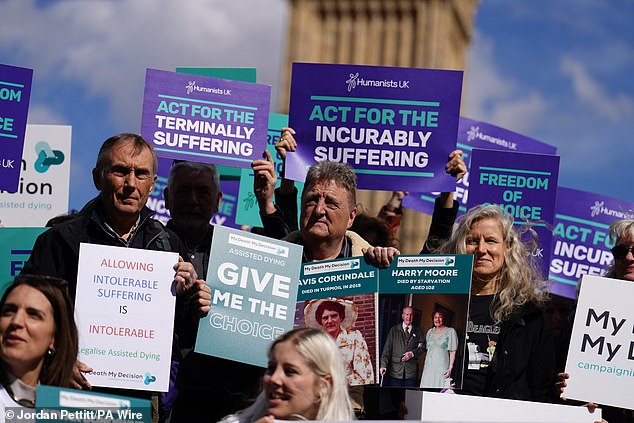Facing a prolonged death – or watching a loved one face it – is a physical and emotional roller coaster.
The fear of what lies ahead can be overwhelming, so it is entirely understandable that many people in this situation – including Dame Esther Rantzen (as well as, if opinion polls are to be believed, a large proportion of the British public) – believe that assisted dying is long overdue.
And who would want to deny a terminally ill person a “good” death: painless, peaceful, and at the time and place of their choice?
But while many people seem to think they are voting for a Swiss-style system, modelled on the Dignitas clinic where more than 500 people in the UK have decided to end their lives since it opened in 1998, there are still many unknowns and questions about what a UK system would look like and, in particular, what safeguards it would have.
Therefore, blindly supporting it is not only fundamentally wrong, but downright dangerous. Dignitas is a non-profit organisation that is largely separate from the Swiss healthcare system and has a robust vetting process before granting access to its services.
It is perfectly understandable that many people, including Dame Esther Rantzen, believe that a legalised system of assisted dying is something that is long overdue, but blindly supporting assisted dying is absolutely dangerous.
This includes at least two face-to-face meetings with the clinic’s doctors, so they can be sure the patient meets their criteria.
Clients must prove they are of sound mind, submit medical records showing their diagnosis and failed treatments, and, in the case of mental illness, often provide a detailed medical report from a psychiatrist to support the claim.
The proposed system in the UK currently contains few such details. Instead, doctors working for the NHS (the same doctors whose job it is to protect the sickest and most vulnerable) would be the ones to help many take their own lives.
However, none of us in the NHS are trained to spot whether someone is being forced to end their life. Nor are we qualified to help those who want to end it all not because they face imminent death, but because they feel they are simply too much of a burden on society.
And where would the ceremony take place? In the hospitals of the National Health System, where lives are supposed to be saved and not ended prematurely? Or in the hospices that are currently doing an excellent job of making those final days and weeks as comfortable as possible?
Assisted dying is not part of a doctor’s duty of care. Worse still, evidence from parts of the world that have legalised it suggests it may have significant repercussions.
For example, in Oregon, the US state that first authorized assisted dying in 1994, suicide rates in the general population have increased by 31 percent since the law changed.
Why? Because it “normalized” it, made it more socially acceptable for people to take their own lives.
If we opt for assisted dying, who should we turn to? In Belgium, children have the legal right to request it. They need parental consent, but it is still available.
And don’t be fooled into thinking it’s always a painless death. Last year, a patient in Oregon took five days to die after being given medication to take.

Campaigners in support of voluntary euthanasia protest outside Parliament in Westminster, London
It is not known what went wrong, but it is not uncommon for people to vomit up the medication, have seizures or even wake up again hours later.
My other concern is that investing money in assisted dying will mean the NHS will cut its palliative care budget.
New Zealand used to be ranked third in the world for the quality of its palliative care. After introducing assisted dying in 2019, it dropped to 11th. Every year in the UK, around 180,000 people die without access to good quality palliative care and instead suffer agonising and traumatic deaths.
This should be our priority. It is better to focus on improving NHS palliative care rather than introducing assisted dying. Yet that does not even seem to be on the agenda.
As told to Pat Hagan.


